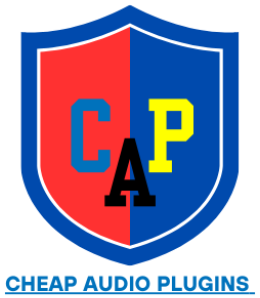When it comes to electronic dance music (EDM) production, choosing the right digital audio workstation (DAW) can make all the difference in your workflow, creativity, and final sound. Among the myriad options available, three DAWs stand out: Logic Pro, Ableton Live, and FL Studio. Each offers unique features tailored to the demands of EDM producers, making them the go-to choices for both beginners and seasoned professionals alike.
Logic Pro: The Complete Package
Logic Pro is renowned for its powerful suite of tools, making it a top choice for EDM producers seeking versatility. One of its biggest advantages is its extensive library of virtual instruments and samples. The wide array of synths, drum machines, and orchestral sounds allows for incredible sonic experimentation. Producers can access instruments like the iconic Alchemy synthesizer, which excels at creating lush pads and intricate leads often found in EDM.
The MIDI editing capabilities in Logic Pro are another highlight. The MIDI Transform functions allow producers to manipulate notes with precision, creating complex rhythms and melodic lines effortlessly. Logic’s robust automation features enable precise control over effects and instruments, allowing for dynamic builds and drops that are crucial in EDM.
Moreover, Logic Pro’s user interface is intuitive, making it relatively easy to navigate. While it has a steep learning curve, particularly for those new to music production, once mastered, it becomes a powerful ally. The DAW’s integration with MIDI controllers and other hardware also enhances the workflow, allowing for seamless recording and manipulation of sounds.
Ableton Live: The Performance Powerhouse
Ableton Live has carved out a niche as the DAW of choice for live performances, making it a popular option among EDM artists who frequently perform their music on stage. The unique Session View allows for spontaneous arrangement and experimentation, enabling producers to trigger clips and loops in real-time. This feature is particularly beneficial for DJ sets and live remixing, giving artists the flexibility to adapt their performances on the fly.
In addition to its performance capabilities, Ableton Live offers a rich selection of sound design tools. The built-in instruments like Operator and Wavetable provide extensive sound-shaping capabilities, allowing for the creation of cutting-edge sounds. Ableton’s powerful audio warping features enable producers to stretch and manipulate samples without losing quality, a crucial aspect when working with varied tempos and beats.
Ableton Live’s extensive collection of audio effects, including reverb, delay, and distortion, allows for in-depth sound processing. The ability to create complex routing setups and use Max for Live for custom devices further enhances its capabilities, making it an adaptable environment for producing unique EDM tracks.
FL Studio: The Beat Maker’s Dream
FL Studio, often affectionately called “Fruity Loops,” has gained a massive following, especially among hip-hop and EDM producers. One of its key strengths is the user-friendly interface, which appeals to beginners while still offering depth for advanced users. The pattern-based workflow allows producers to create beats quickly, making it particularly effective for creating catchy hooks and intricate rhythms.
The integrated step sequencer in FL Studio is a standout feature that simplifies the process of beat making. It enables users to input notes with ease, making it easy to program complex drum patterns. Coupled with the powerful Piano Roll editor, producers can fine-tune melodies and harmonies, essential for crafting the emotive aspects of EDM.
FL Studio also boasts an impressive library of plugins and effects, including the beloved Sytrus and Harmor synthesizers. These tools provide a diverse palette of sounds, allowing producers to create everything from booming basslines to soaring leads. The versatility of its effects chain means that sound design possibilities are virtually limitless.
Conclusion: Choosing the Right DAW
Ultimately, the choice between Logic Pro, Ableton Live, and FL Studio comes down to personal preference and specific needs. Logic Pro offers an all-encompassing suite ideal for detailed production, while Ableton Live shines in live performance settings and real-time experimentation. FL Studio stands out for its accessible workflow, making it perfect for those just starting out in EDM production.
Each of these DAWs has shaped the landscape of electronic music, empowering countless artists to realize their creative visions. Regardless of which DAW you choose, what truly matters is how you leverage its tools to express your artistic voice. Whether you’re crafting a hypnotic trance track, a pulsing techno beat, or a vibrant house anthem, Logic Pro, Ableton Live, and FL Studio provide the essential features and flexibility to bring your EDM productions to life.


0 Comments